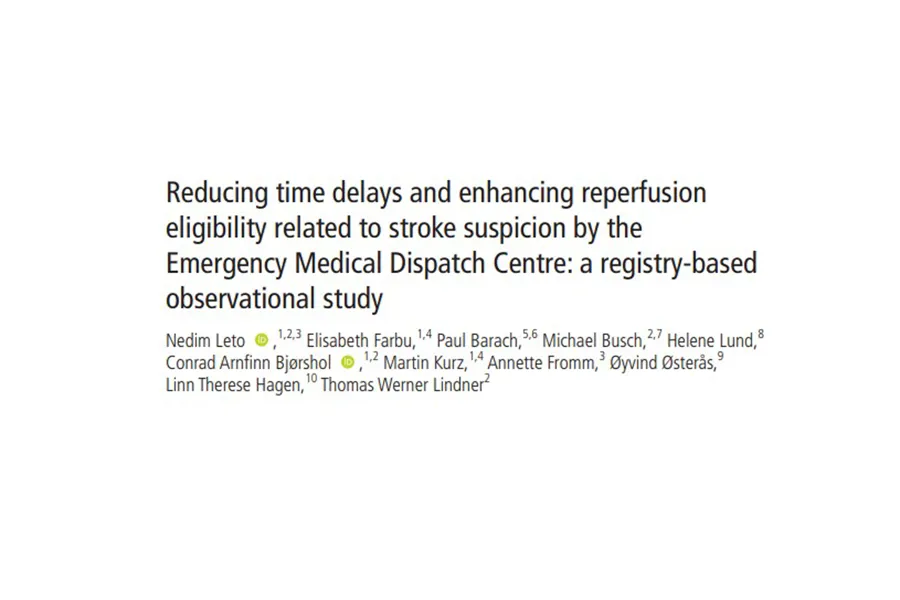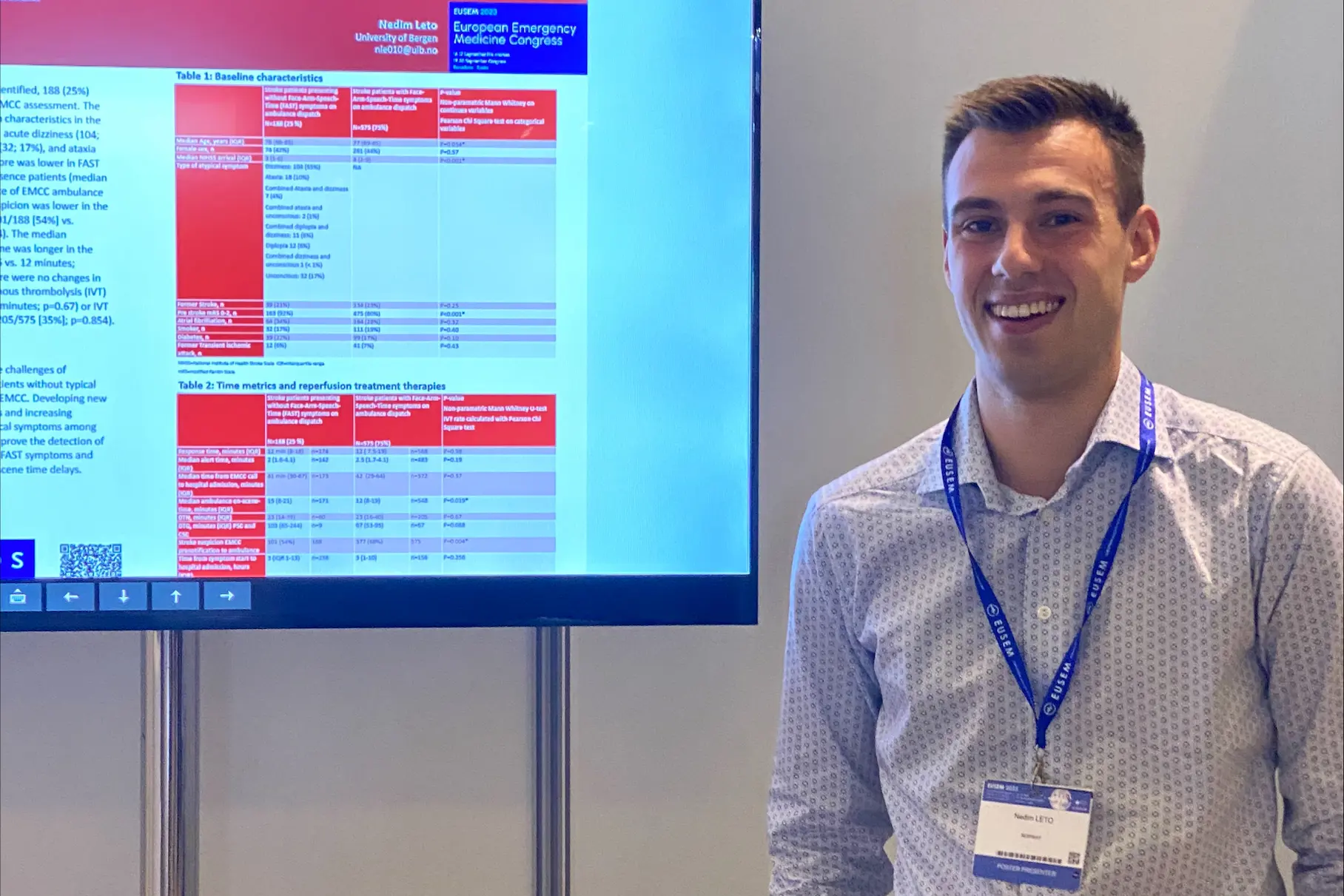Faster stroke diagnosis - better treatment
How early suspicion of stroke at the emergency medical dispatch center (AMK) can improve the treatment of patients with acute ischemic stroke


Nedim Leto, a medical student and PhD candidate at RAKOS, has just published an important study demonstrating how early suspicion of stroke during emergency calls can improve patient treatment. This is his second publication and a great result of teamwork with all the authors, and for RAKOS.
The study analyzed how accurate suspected stroke alerts from the emergency medical dispatch center (AMK) to the ambulance affected treatment times for patients with acute ischemic stroke. The results showed that patients suspected of having a stroke received faster ambulance treatment and quicker access to thrombolysis and endovascular treatment at the hospital.
The findings highlight the importance of improving training and tools for emergency medical dispatch centers, as a significant proportion of stroke patients could be identified more quickly. This could help reduce delays and thereby improve patient outcomes. The study marks a major milestone for both research and clinical practice at RAKOS.
Link to article: